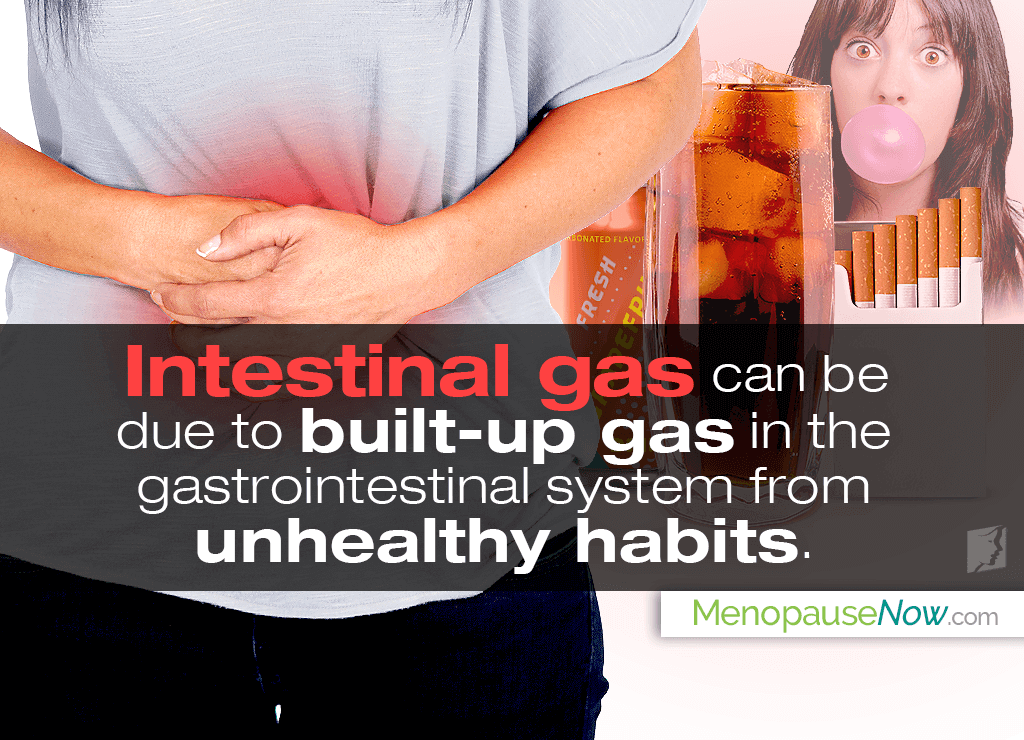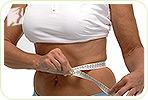Having gastrointestinal bloating is as uncomfortable as it is frustrating for women who frequently suffer from the symptom, possibly leaving them with a hoard of unanswered questions about what's causing it in the first place and how they can find ultimate relief.
Continue reading to find out answers to frequently asked questions about intestinal bloating so you can have peace of mind in knowing how to beat the symptom once and for all.
What Causes Intestinal Bloating during Menopause?
Estrogen is a key reproductive hormone that plays an instrumental role in water retention in females. Accordingly, the hormone's erratic fluctuations during menopause can cause intestinal bloating.
Intestinal gas can also be a factor of decreased bile production due to low estrogen levels. Because bile helps break down fats and lubricate the small intestine, its absence can lead to intestinal bloating as fats are poorly digested.
What Else Can Lead to Intestinal Bloating?
Intestinal gas can be also due to built-up gas in the gastrointestinal system from swallowing air (from chewing gum, talking while eating, drinking carbonated beverages, etc.); smoking; lack of exercise that causes weakness in the stomach muscles; or other unhealthy habits.
Moreover, it can be caused by health conditions that cause gastrointestinal bloating, such as a food intolerance or irritable bowel syndrome (IBS).
What Dietary Adjustments Can I Make?
For beginners, eat smaller portions and avoid any practice that causes you to swallow air. Moreover, adjust your diet to exclude foods known to cause intestinal gas and are high in indigestible carbohydrates, such as beans, dairy products, garlic, onions, wheat, cauliflower, cabbage, and broccoli.
How Else Can I Manage It?
Try behavioral or psychological therapies as there is evolving research over the connection between one's gastrointestinal tract and psychological state. These therapies include hypnotherapy, cognitive behavioral therapy, and biofeedback.
Furthermore, many other therapies for gastrointestinal bloating are aimed at improving the transit of stool through the colon, thus necessitating the need for laxatives.
How Can I Treat Intestinal Bloating During Menopause?
Gastrointestinal bloating caused by menopausal hormonal fluctuations can be treated by addressing the root cause of hormonal imbalance. To do so, women are encouraged to start with the least invasive bloating treatments that are centered on lifestyle changes - many aforementioned - and complemented with alternative medicine of phytoestrogenic or hormone-regulating supplements.
What Else Can Be Used to Treat Intestinal Gas?
Intestinal gas due to other factors are treated on a case-by-case basis as seen fit by you and your doctor. Alongside lifestyle adjustments, your doctor may recommend pharmaceutical drugs of over-the-counter, anti-bloating medications or prescription diuretics.
When Should I Be Concerned?
Abdominal bloating is generally not a need for concern.
However, if your bloating is accompanied by symptoms of dehydration, dizziness, unexplained weight loss, a severe headache, and other worsening symptoms that do not subside within a day or two, seek emergency medical care.
Key Takeaways
While women who suffer from gastrointestinal bloating during menopause may have their hormones to blame, there are other health conditions and situations that cause the symptom as well. Managing bloating quickly includes changing poor eating habits, adjusting your diet, or trying out behavioral or psychological therapies as well as laxatives; whereas, a long-term solution lies in treating the root cause, whether it be hormonal imbalance or other factors. With a little bit of persistence, you can have your gut health back in no time.
Sources
- Chutkan, R. (2016). The Bloat Cure: 101 Natural Solutions for Real and Lasting Relief. New York: Avery. Available from Google Books.
- Foley, A. et al. (2014). Management Strategies for Abdominal Bloating and Distension. Gastroenterology & Hepatology, 10(9), 561-571. Retrieved February 4, 2019, from https://www.ncbi.nlm.nih.gov/pmc/articles/PMC4991532/
- NHS. (2016). Beat the bloat. Retrieved February 4, 2019, from https://www.nhs.uk/live-well/eat-well/remedies-for-bloating-and-wind/
- Stachenfeld, N.S. (2008). Sex Hormone Effects on Body Fluid Regulation. Exercise and Sport Sciences Reviews, 36(3), 152-159. doi: 10.1097/JES.0b013e31817be928




